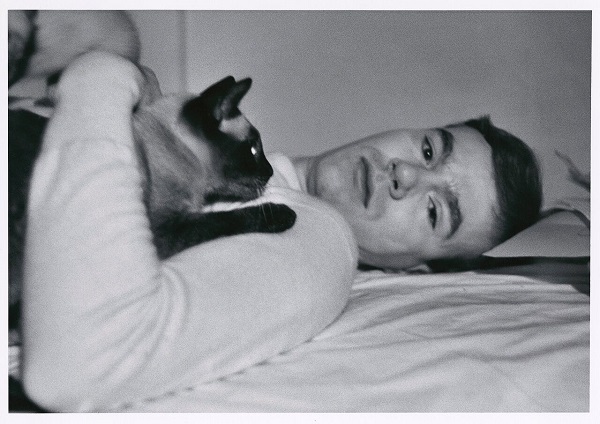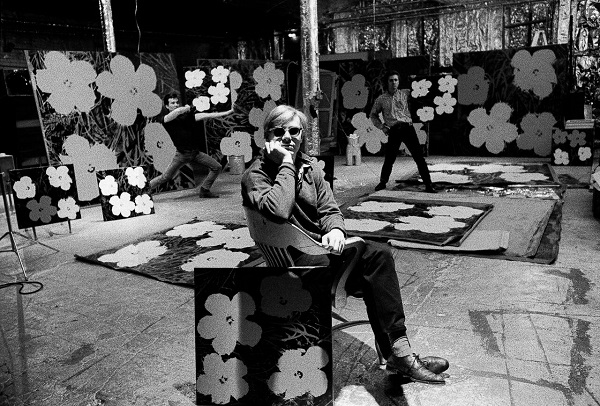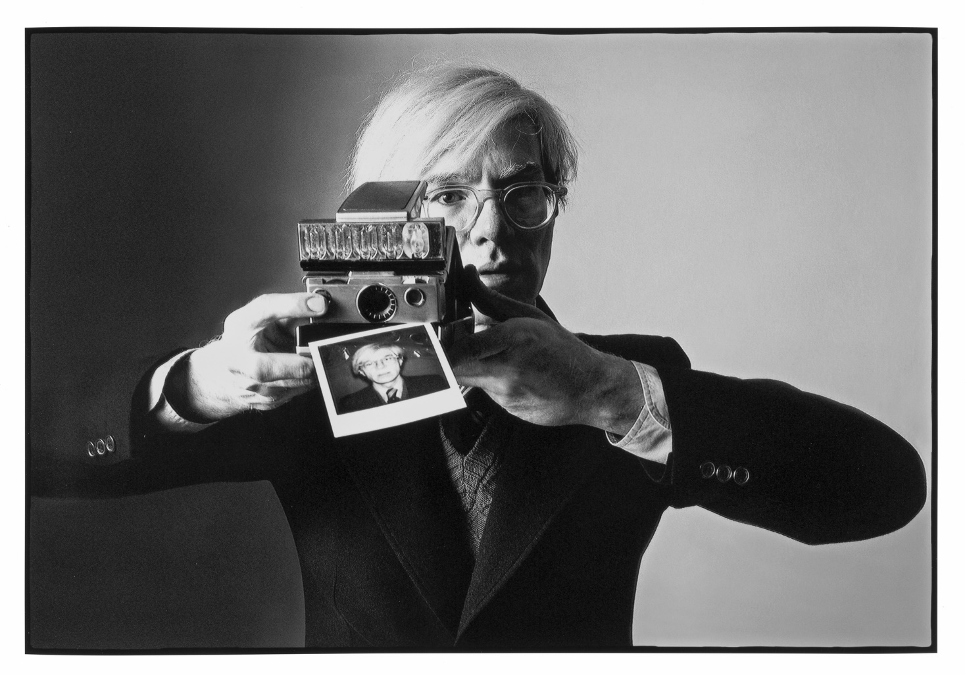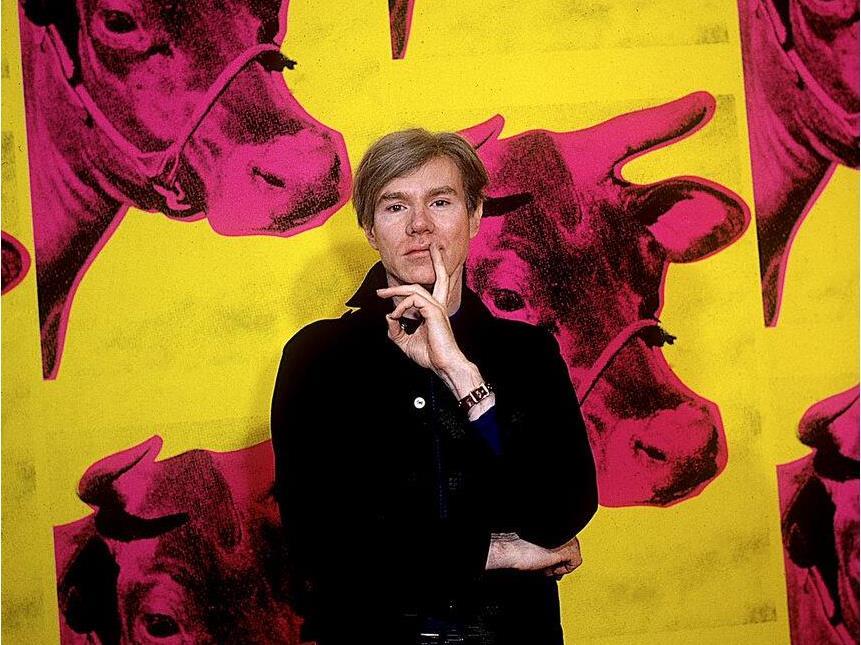With his roots as a commercial artist, Andy Warhol embraced capitalism, transforming the artist figure into a brand identity and paving the way for a new attitude to commercial success in the arts.
‘Warhol bent the American consumerist system to artistic ends throughout his career – embracing capitalism at a time when many in the creative sphere viewed it sceptically, if not with outright hostility,’ wrote Andrew M Goldstein for Blouin Artinfo.
Warhol exhibitions are perennially, globally. Tate Modern will feature Warhol’s works alongside other contemporaries in the exhibition Capturing the Moment this year (opens 15 June 2023). Their last extensive look at Warhol was in 2020, in a major survey show.
While Australian audiences are soon to get a taste of Warhol’s success with the exhibition Andy Warhol and Photography: A Social Media at the Art Gallery of South Australia, and another, The Legends of Pop Art (including the works of Andy Warhol alongside Keith Haring and Jean-Michel Basquiat) at HOTA, Home of the Arts on the Gold Coast. One of the things these artists have in common is their interest in ‘selfies’ – even if the word didn’t exist in Warhol’s day.
Warhol once stated he would endorse anything with his name, whether a block of concrete, Brillo boxes and, of course, soup cans with Warhol’s signature.
‘Being good in business is the most fascinating kind of art. Making money is art and working is art and good business is the best art,’ he famously said.
That approach has become a catchcry for a growing body of ‘artpreneurs’ who do not shy away from the money-making potential of creativity.
But aside from the commercial brilliance, there is a controversial side to Warhol’s capitalism. He was unashamed about exploiting his acolytes and plagiarising their ideas. Gallerist Muriel Latow was said to have come up with the ideas for his soup cans and paintings of dollar bills.
Warhol paid her $50 and made millions from the reproduceable works […] So what can a contemporary arts professional learn from Warhol’s commercial success? Keeping in mind that even the controversial or limiting aspects of an artist’s career contain teachings, we’ve collected a host of pithy sayings by Warhol on the topics of business, commerce, money, art and life to derive lessons for the modern day artist.
On art and money…
‘You know it’s ART, when the cheque clears.’
‘Success is when the cheque don’t bounce.’
‘Do you know that the Campbell’s Soup Company has not sent me a single can of soup?’
‘I’d asked around 10 or 15 people for suggestions. Finally, one lady friend asked the right question “Well, what do you love most?” That’s how I started painting money.’
‘Business art is the step that comes after art. I started as a commercial artist, and I want to finish as a business artist. Being good in business is the most fascinating kind of art. During the hippie era people put down the idea of business. They’d say “money is bad” and “working is bad”. But making money is art, and working is art – and good business is the best art.’

On marketing and publicity…
‘It’s not what you are that counts, it’s what they think you are.’
‘People are always so boring when they band together. You have to be alone to develop all the idiosyncrasies that make a person interesting.’
‘In the future, everybody will be world famous for 15 minutes.’
‘Publicity is like eating peanuts. Once you start you can’t stop.’

On what it takes to be an artist…
‘I never wanted to be a painter; I wanted to be a tap dancer.’
‘Don’t think about making art, just get it done. Let everyone else decide if it’s good or bad, whether they love it or hate it. While they are deciding, make even more art.’
‘An artist is somebody who produces things that people don’t need to have.’
‘You have to do stuff that average people don’t understand because those are the only good things.’
‘An artist is someone who produces things that people don’t need to have but that he – for some reason – thinks it would be a good idea to give them.’
‘The idea is not to live forever, it is to create something that will.’
‘I just do art because I’m ugly and there’s nothing else for me to do.’
On the meaning of art…
‘Pop art is for everyone.’
‘Art is what you can get away with.’
‘I’m afraid that if you look at a thing long enough, it loses all of its meaning.’
‘You need to let the little things that would ordinarily bore you suddenly thrill you.’
On the fear of missing out…
‘I’m the type who’d be happy not going anywhere as long as I was sure I knew exactly what was happening at the places I wasn’t going to. I’m the type who’d like to sit home and watch every party that I’m invited to on a monitor in my bedroom.’

On success…
‘If something’s going to happen for you, it will, you can’t make it happen. And it never does happen until you’re past the point where you care whether it happens or not. I guess it’s for your own good that it always happens that way, because after you stop wanting things is where having them won’t make you go crazy.’
On growth, career and change…
‘They always say time changes things, but you actually have to change them yourself.’
‘When people are ready to, they change. They never do it before then, and sometimes they die before they get around to it. You can’t make them change if they don’t want to, just like when they do want to, you can’t stop them.’
‘Sometimes people let the same problem make them miserable for years when they could just say, “So what”. That’s one of my favourite things to say. “So what”.’
‘As soon as you stop wanting something, you get it.’
‘It does not matter how slowly you go, so long as you do not stop.’
‘Sometimes the little times you don’t think are anything while they’re happening turn out to be what marks a whole period of your life.’
‘I wake up every morning. I open my eyes and think: here we go again.’
‘People need to be made more aware of the need to work at learning how to live because life is so quick and sometimes it goes away too quickly.’





